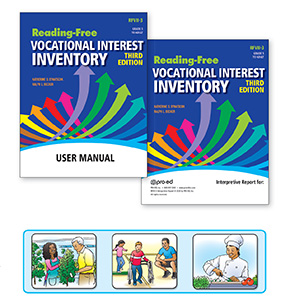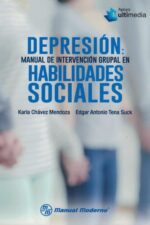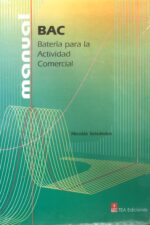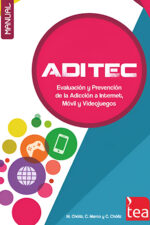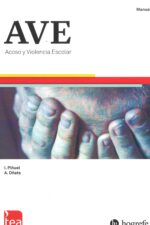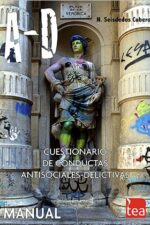The Reading-Free Vocational Interest Inventory–Third Edition (RFVII-3) is a nonverbal measure of vocational interests for users from Grade 5 through adult. It uses illustrations of individuals engaged in different occupations to measure the vocational likes and dislikes of students and adults who have intellectual disabilities or learning disabilities, are struggling readers, or anyone who prefers a pictorial display. No reading or writing is required.
Features and benefits
- Features 80 full-color illustrated items showing people enganged in a wide range of occupations.
- Aligns interests with the 16 Career Clusters defined by the U.S. Department of Education and the U.S. Department of Labor and People/Data/Things classification.
- Easy to administer and score.
- Appropriate for use by teachers, psychologists, counselors, or other vocational and educational personnel in schools, career and technology programs, sheltered employment centers, vocational rehabilitation centers, and other job training and career placement facilities.
Test structure
- For each of the items, examinees select the one illustration out of three that they find most interesting. Occupations shown range from those requiring little to no training to those for which considerable training is needed.
- Includes paper-and-pencil and online administration options with available online scoring.
- Generates a thorough individualized Interpretive Report containing interactive links to O*NET Online resources from each of the 16 Career Clusters. A Group Report is also available.
Technical information
- Reliability studies examined test–retest reliability and the equivalency between paper and online administration. Test–retest reliability coefficients range from .63 to .87 (large to very large) and equivalency coefficients range from .79 to .89 (very large).
- Extensive field-testing was completed with populations ranging in age from Grade 5 through age 65 including students in general education, special education, ESL classes, community-based programs for young adults with intellectual disabilities, and college classes.

